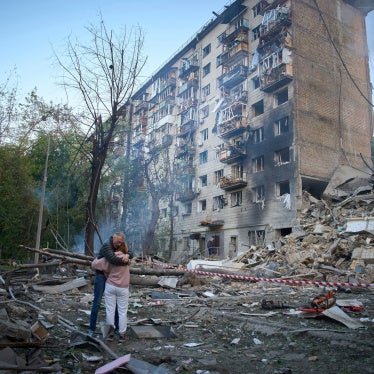The European Union’s “quiet diplomacy” just got much quieter. With one strongman in particular, it is almost inaudible.
Remarkably, Brussels dragged its feet to inform the public of an upcoming visit by Azerbaijan president Ilham Aliyev, who is coming to town on Monday (6 February) to personally inaugurate negotiations on a new EU-Azerbaijan partnership agreement.
The deal is set to strengthen the political and economic ties between the union and its oil-rich neighbour to the south east. A state visit and a new partnership negotiation usually come with a lot of fanfare. Why all the reluctance to share the date of his visit?
The lack of transparency is hardly surprising from Baku’s side. The authorities in Azerbaijan are extremely hostile to public scrutiny and accountability, and this very hostility is at core of the crackdown on critics, opposition activists, journalists and other dissenting voices for many years.
But the secrecy around the visit suggests that Baku’s deeply problematic approaches to transparency are rubbing off on the EU.
Is the EU really so quick to set aside its own commitments to transparency and accountability? Apparently so.
During more than a dozen official meetings my colleague and I had on 26 and 27 January in Brussels, officials were extremely tightlipped about Aliyev’s visit.
Once we understood it was in the works, and pressed for some, any, information, officials and diplomats flatly refused to share the date of the visit.
One member-state diplomat, clearly uncomfortable with the “gag order,” eventually acknowledged that there was an agreement that the date would not be communicated beyond the hallowed walls of European External Action Service and the member state diplomats.
It was not until late last week when the date of the visit became official after the calendar of the European Commission president was updated online.
Does the EU fear publicity of Aliyev’s trip to Brussels and inevitable criticism of Azerbaijan’s human rights record and the EU’s failure in pressing for reforms? It may fear it, but that criticism would be well-earned.
Well-earned criticism
Beyond arresting, prosecuting, harassing and exiling critics, the Aliyev government also implements draconian laws and regulations restricting independent groups and their ability to secure funding.
Even major EU donors, like the European Endowment for Democracy, and other donors across Europe are shut out of Azerbaijan.
This means independent groups in Azerbaijan providing essential services and protecting the rights of citizens against government abuses can’t get the funds they need to operate.
They will not survive much longer. Meanwhile, the EU seems to care little, forging ahead towards the economic benefits it hopes to reap.
The vicious crackdown had drawn vocal condemnation from many of Azerbaijan’s international partners, including two strongly-worded resolutions from the European Parliament in 2014 and 2015.
Baku, again, in an overheated response to criticism, almost entirely disengaged from political dialogue with the EU in 2015.
Earlier in 2016, the Azerbaijani authorities freed 17 human rights defenders, journalists, and political activists imprisoned on politically motivated charges.
Many in the EU rushed to congratulate Aliyev on the releases and sought to frame the move as an indication of a shift in Azerbaijan’s punitive attitude towards its critics.
The EU and Azerbaijan gradually restored most of their bilateral ties, and in November 2016 the European Council approved a mandate for the Commission to negotiate the new framework agreement with Azerbaijan.
But the EU and others were far too quick to heap praise: none of these individuals should have been detained in the first place, and worse the government simply arrested new critics it did not like to take their place behind bars.
Empty gesture
Since the releases, there has been no fundamental human rights turnaround from Baku. It has relentlessly pursued the political opposition, youth activists, bloggers and others. It even goes after the relatives of those who have fled abroad, including to the EU, to escape persecution.
Many activists convicted in politically motivated trials between 2013 and 2015 remain in prison. Those released have not had their convictions quashed, which can limit their activism. Many face travel bans. They will see how Aliyev gets the EU’s red carpet treatment; meanwhile, they cannot even make it to Brussels.
Under such circumstances, deepening engagement with Aliyev’s government, without first securing concrete and sustainable human rights improvements sends a wrong message about the EU’s priorities, and is bad for the EU.
The EU stands to benefit far more from a partnership with a country that respects rule of law and human rights, than one that cannot be trusted to do so.
As EU officials quietly prepare to roll out the red carpet and treat the Azerbaijani strongman with fanfare, it should make sure that this deepening relationship is the one adhering to its own principles of “democracy, the rule of law, the universality and indivisibility of human rights and fundamental freedoms,” as it committed to in all of its negotiations with third party countries.
Transparency is a key part of that. While the new agreement is up for the negotiations, the EU’s principles of transparency and accountability should not be up for grabs.








